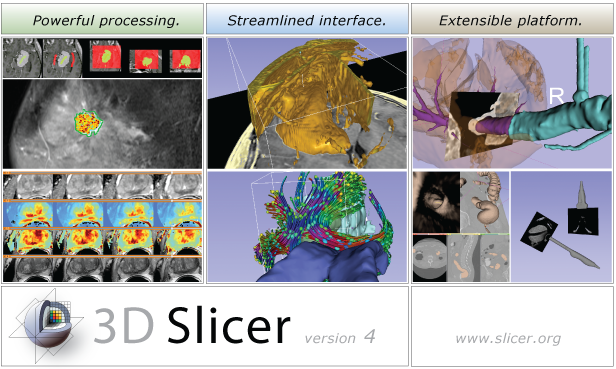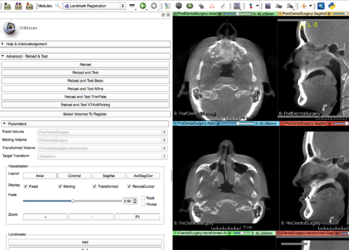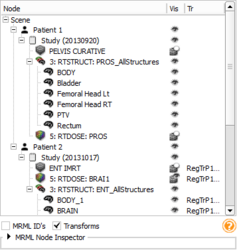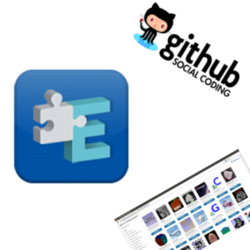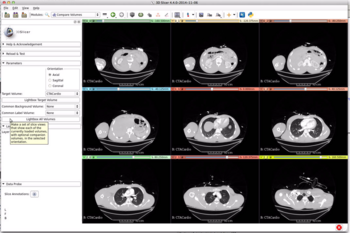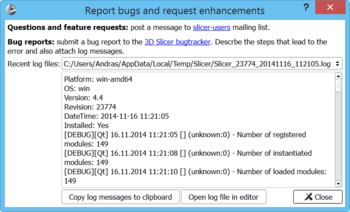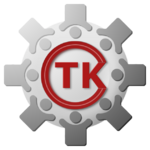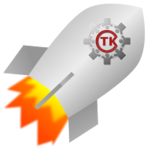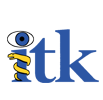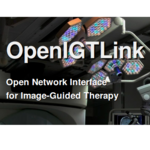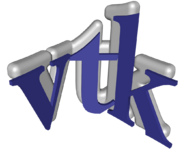Difference between revisions of "Documentation/Nightly/Announcements"
| Line 60: | Line 60: | ||
<li>The RevealCursor allows you to look in detail at the fg/bg layers.</li> | <li>The RevealCursor allows you to look in detail at the fg/bg layers.</li> | ||
</ul> | </ul> | ||
| + | |||
| + | Image:SlicerErrorReportDialog.png|All application error and warning messages are saved to file. Logged messages for the current and recent sessions are available from the new error report box (menu: Help / Report a bug). | ||
| + | |||
</gallery> | </gallery> | ||
Revision as of 20:53, 16 November 2014
Home < Documentation < Nightly < Announcements
|
For the latest Slicer documentation, visit the read-the-docs. |
| Summary | What is 3D Slicer | Slicer Nightly Highlights | Slicer Extensions | Other Improvements, Additions & Documentation |
Summary
The community of Slicer developers is proud to announce the release of Slicer Nightly.
- Slicer Nightly introduces
- an improved App store, known as the extension manager, for adding capabilities to Slicer. More than 50 plug-ins are currently available.
- close to 400 feature improvements and bug fixes lead to improved performance and stability.
- augmentation of many modules.
- Click here to download Slicer Nightly for different platforms and find pointers to the source code, mailing lists and bug tracker.
- Please note that Slicer continues to be a research package and is not intended for clinical use. Testing of functionality is an ongoing activity with high priority, however, some features of Slicer are not fully tested.
- The Slicer Training page provides a series of courses for learning how to use Slicer. The portfolio contains self-guided presentation and sample data sets.
The main slicer.org pages provide a guided tour to the application, training materials, and the development community. New users should start there because we try to keep the pages organized and up to date.
What is 3D Slicer
Slicer is a community platform created for the purpose of subject specific image analysis and visualization.
- Multi-modality imaging including, MRI, CT, US, nuclear medicine, and microscopy
- Multi organ from head to toe
- Bidirectional interface for devices
- Expandable and interfaced to multiple toolkits
There is no restriction on use, but permissions and compliance with rules are responsibility of users. For details on the license see here
Slicer Nightly Highlights
- New and Improved Modules
New LandmarkRegistration module providing interactive registration and inspection.
New Subject hierarchy module organizes and handles loaded data, providing processing and analysis features through plugins.
Improved Transforms module with support for non-linear transforms, visualization of transforms in 2D and 3D, detailed transform properties view.
- New ExtensionsWizard tool deprecating the ModuleWizard.
- This new tool separates the concepts of extensions and modules, and allows creating an extension containing several modules, as well as adding modules to an existing extension.
- It allows to publish an extension source code to github.
- It provides an easy way to create a pull request on the extension index.
New Compare Volumes supports an overview of one or more volumes in the scene.
DICOM
- Improve DICOM support user experience
- Add a way to change the table densities in three levels: compact, cozy and comfortable.
- Re-arranged the patient, study and series search box so that the search box will be on the top of tables for both horizontal and vertical cases.
- Resize tables based on contents.
- Allow users to acknowledge all DICOM loading errors with a single click
- Add DICOM header viewer
Transforms
- Improved integration of non rigid deformations, including grid (displacement field) and bspline transforms
- Interactive application of non rigid deformations to volume slices, models, markups
- Visualization of non rigid deformations as glyphs, grid, or contours in 2D and 3D views
- Detailed transform information display (type of transform, basic properties, displacement at current position)
- Loading/saving of oriented bspline transforms with or without additive bulk component
- Loading/saving of oriented grid transforms
- Loading/saving of transforms in h5 file format
Markups
- Improved Markups module user interface
- Add slice intersections toggle
- Add right click option to copy markups list
- Add coordinates to right click menu
Editor
- Add a Sphere option to the PaintEffect to make it quicker to segment large anatomical regions that are somewhat spherical.
- Paint using pixel mode if brush size is too small
- Button effect are checked/unchecked based on the 'effect' property stored in the parameter node
Extensions Manager
- Add search box
- Add 'More' link
- Load extension icon from disk
- Implement downloading of extension icons
- Install extension dependencies
- Add mechanism to check for extensions updates
Slicer Extensions
TODO: Will be generating automatically list.
- New and Improved Extensions
- Foo.png
Foo for doing awesome stuff. NEW
Other Improvements, Additions & Documentation
Optimization
- Improve Rendering pipeline performance optimizing observations management
- Reduce memory footprint (Fix memory leaks)
- Reduce installer size
- Faster image stack (png, jpg, bmp, tiff...) loading
Rendering / Visualization
- Add Multi-sampling option
- Improved scalar bar to allow displaying of annotations in conjunction with labels.
- Slice Annotations: enhance the DataProbe module providing an easy way to show/hide/customize corner annotations, ruler and color bar in the Slice viewers.
CLI / SlicerExecutionModel
- Improved CLI AutoRun ensuring slice view is not reset when inputs are updated.
- In developer mode do not remove CLI input and output files
- Reduce the chance of crashes when CLI returns result images
Python scripting
- Add support for real Qt resources in Python. See r23290 for details.
- Improve VTK event support adding a way to specify the CallData type. See here for details.
- Bundle pydicom python module in Slicer package
- Add helper methods to
ScriptedLoadableModuleLogicfor managing parameter nodes
- SelfTest: Add
clickAndDrag()method to the scripted module. It allows to send synthetic mouse events to the specified widget (qMRMLSliceWidget or qMRMLThreeDView)
- Improve
slicer.utilpython module.- Add
modulePath(moduleName)method - Add
resetThreeDViews/resetSliceViews - Add
VTKObservationMixin - Add
getFirstNodeByClassAndName() - Add
NodeModifycontext manager: It allows to easily disable modified event associated with a node, and automatically re-enable them and invoking them if it applies.
- Add
- Markups: Add an event PointEndInteractionEvent for the end of a fiducial interaction
- TODO: Add reference to VTKv6 blog posts
Other
- Help / Report a bug: Added option to copy log file contents
- TODO - Please add entry to illustrate awesome feature listed above
For Developers
Under the hood
- VolumeLogic:
- Add method ResampleVolumeToReferenceVolume
- Add method CloneVolumeWithoutImageData
- Add support for user-defined stereo-viewing options
- Build-system
- Improve support for Visual Studio 2013
- Refactor management of external project launcher settings. See r23724
- Add option
Slicer_ITKV3_COMPATIBILITY. This option enabled by default will allow (if disabled) to build Slicer with ITKv3 compatibility later disabled andITK_USE_64BITS_IDSenabled.
- SlicerExecutionModel: Add ParameterSerializer support.
- Improved Toolkits
Moved from OpenIGTLink 66e272d to 849b434 (53 commits)
Looking at the Code Changes
From a git checkout you can easily see the all the commits since the time of the 4.4.0 release:
git log v4.3.0..HEAD
To see a summary of your own commits, you could use something like:
git log v4.3.0..HEAD --oneline --author=pieper
see the git log man page for more options.
Commit stats and full changelog
